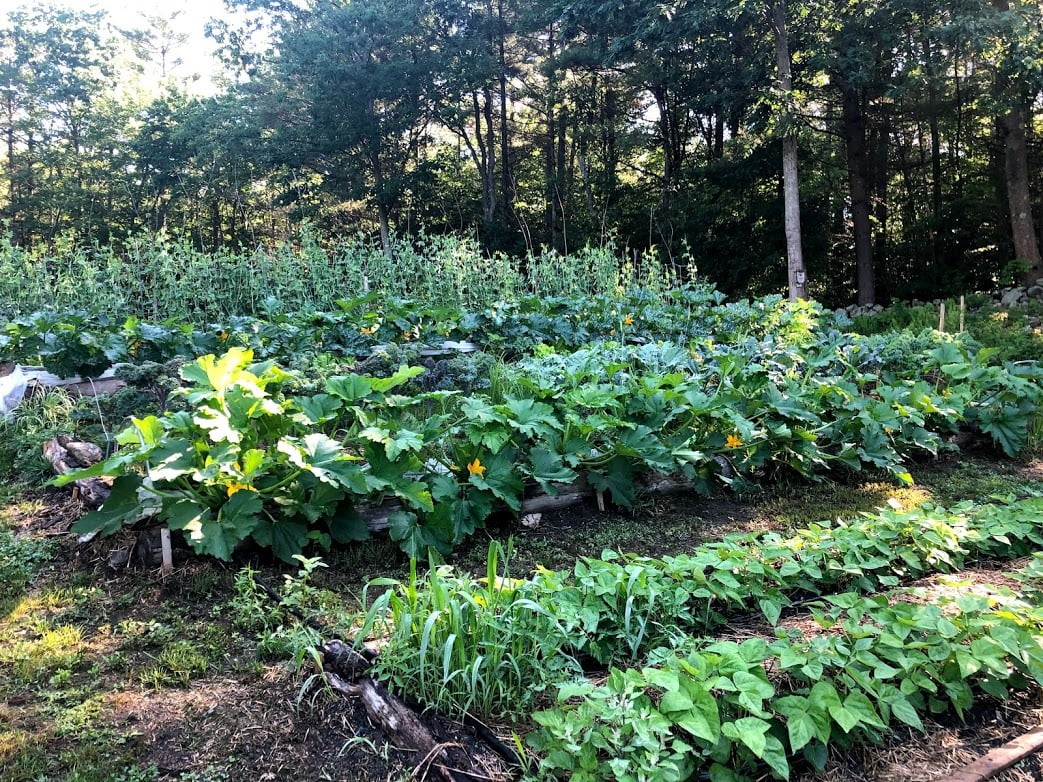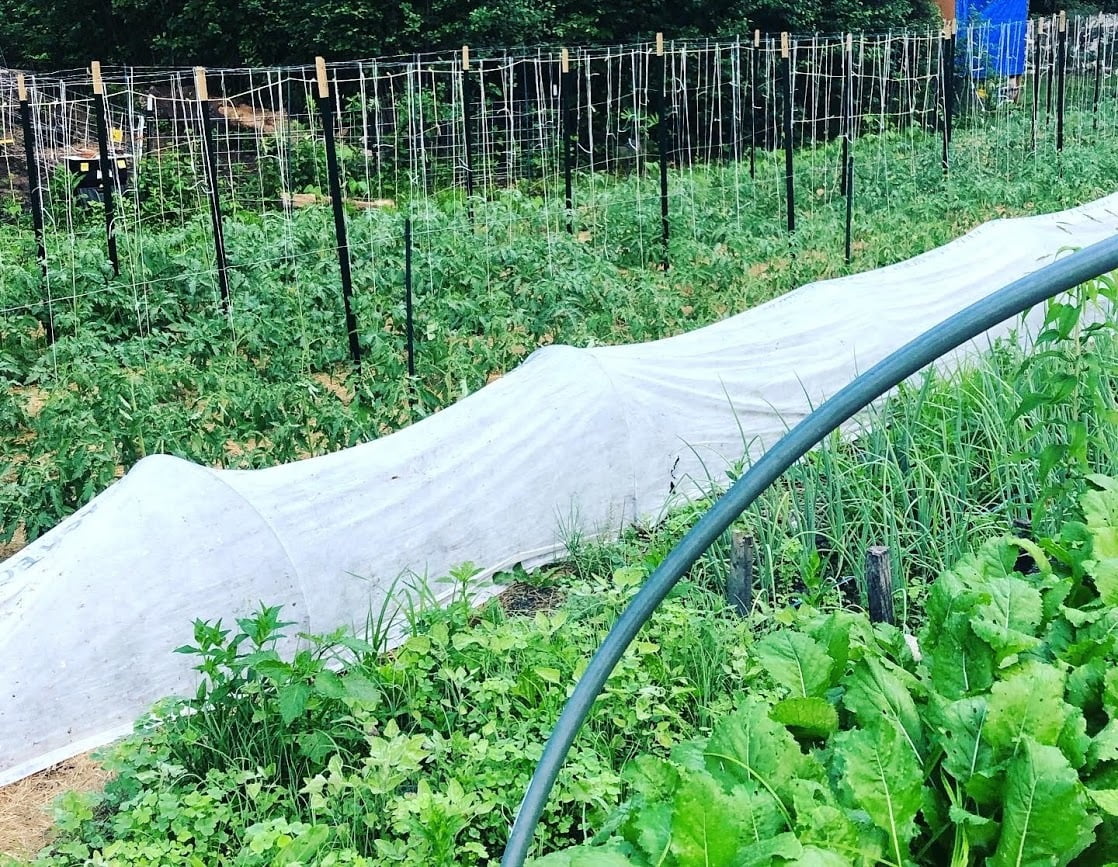Our Produce
We pride ourselves on providing our community with healthy, safe, sustainable and ethical food. It's how we've grown food for ourselves and the only way we will grow it for others. We use a variety of techniques, schools of thought, and a labor of love to produce our crops. We are constantly learning, trying new things, listening to mother nature and working to be good stewards of the earth. Below we answer some FAQ's on what and how we grow.
Is your produce organic?
Legally, the answer is no. We do not have organic certification. We do not use chemical fertilizers, pesticides or treated seeds. A good article on why small farms are opting out of certification can be found here.
If you don't use pesticides, how do you deal with bugs?
We use a number of methods, starting with a diverse crop. By having many different crops planted, if we do experience pests we can often contain it to one crop or a singular variety within a crop. Although we may lose the crop or have a reduced harvest, it doesn't spread beyond that. Mono-culture farms don't have that luxury. We also use companion planting, a method of using additional plants as a natural deterrent or attractant. Biodynamic practices help keep our soil and plants healthy, which allows our plants to withstand more pest and disease pressure. When we do have pests, we use things like row covers, soapy water, herbal sprays and good old fashion picking to combat them.
What growing methods do you use?
We use a number of methods in our gardens. Beyond companion planting, we use a lot of square foot gardening principles to help maximize our space. We also use a number of techniques to keep weeds down and moisture in, like using cardboard, straw and soaker hose irrigation. We also use crop rotation, winter cover crops and plenty of composted organic matter to keep our land healthy and nutrient dense.
What about water?
We do our best to collect rain water on the farm. When that's not available to us we use the Ashburnham town water supply.
What about Genetically Modified Organisms (GMOs)?
We do our very best to not purchase any seeds that have been genetically modified. We purchase our seeds from transparent, safe seed certified suppliers. Although we do support science, at this time we do not feel that Genetically Modified Seeds are the best ethical practice and that some practices used with GMO seeds are not healthy or sustainable.
So is all your produce from heirloom seeds?
No. We use both heirloom and hybrid seeds in our planting. Hybrid seeds use the principles of natural selection in a controlled environment to produce better yields, disease resistance and adaptability. Hybrid seeds are what Mendel produced in his pea experiments. We love the rich flavor and beauty of standard heirlooms and the versatility and increased yields of hybrids, so we plant both types. We are working towards utilizing a majority of heirloom and open pollinated seeds to make us more self sufficient and sustainable.
What is the difference between GMO and Hybrid Seeds?
Hybrid seeds are produced when you take two different varieties of a vegetable (lets stay with our peas) and let them cross-pollinate. You then save the seeds from the cross-pollinated produce and plant it, those hybridized seeds can have better disease tolerance, or a higher crop output. It's how we select better traits, in a controlled and natural way. So lets say we have pea variety A, which has very small pods and very high yields and pea variety B, which has very large pods but a very low yield. I would plant these in an environment where they would cross-pollinate and save the seeds. Next year when I plant these seeds I end up with both large pods and high yields.
Genetically Modified Organism seeds are the process of altering DNA in a way that could not happen naturally. Most often this process is used to make the seed resistant to weed killers/pesticides or tolerant to disease. In this example our peas would have a bit of their genes spliced and replaced in a lab so that those peas could be sprayed with weed killer and the peas not be harmed.
We are always happy to answer any questions about our methods or practices!


